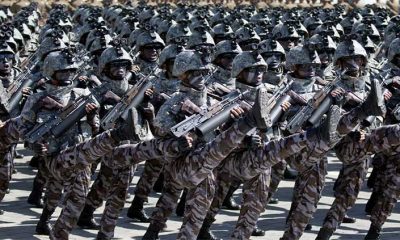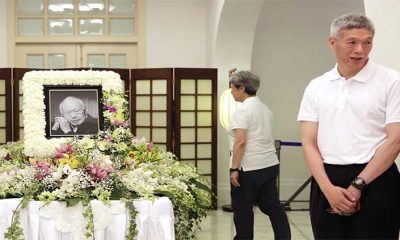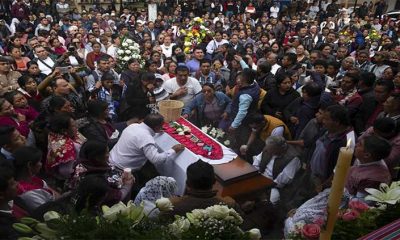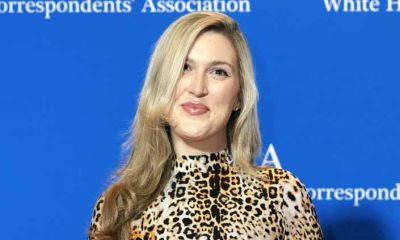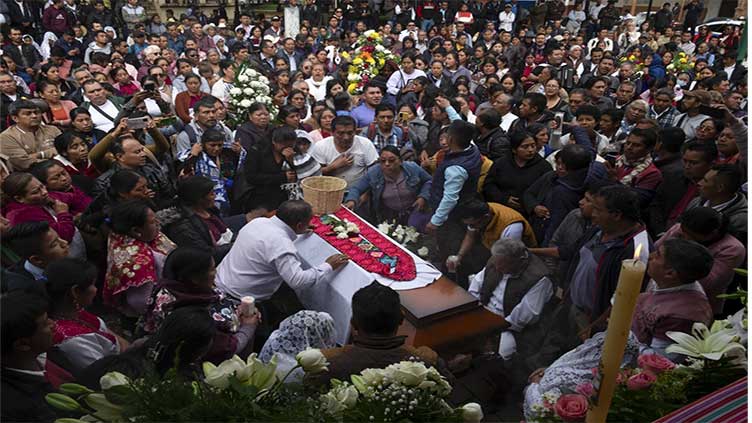The man charged with shooting three college students of Palestinian descent in Vermont last weekend was accused several years ago of harassing an ex-girlfriend in New York state, but no charges were ever filed, according to a police report.
Jason J. Eaton’s ex called police in Dewitt, New York, a town near Syracuse, in 2019 saying she had received numerous text messages, emails and phone calls that were sexual in nature but not threatening from Eaton, and wanted him to stop contacting her, according to a police report obtained by The Associated Press. NBC News first reported on the complaint.
The woman said Eaton had driven his pickup truck by her home that evening and a second time while she was talking to the police officer. She said she didn’t want to press charges against him but just wanted police to tell him to stop contacting her, the report states.
Police pulled over Eaton’s vehicle and he told them that he was under the impression that the woman still wanted to see him, according to the report. The officer told Eaton that the woman wanted absolutely no contact with him and he said he understood, according to police.
Eaton, 48, is currently being held without bail after his arrest Sunday in the city of Burlington on three counts of attempted murder. Authorities say he shot and seriously wounded Hisham Awartani, Kinnan Abdalhamid and Tahseen Ali Ahmad in Burlington on Saturday evening as they were walking near the University of Vermont. The 20-year-old students had been spending Thanksgiving break with Abdalhamid’s uncle Rich Price, who lives nearby.
In this Thursday, Nov. 23, 2023 photo provided by family attorney Abed Ayoub, three college students, from the left, Tahseen Ali Ahmad, Kinnan Abdalhamid, and Hisham Awartani, stand together for a photograph. The three young men were shot and seriously injured Saturday, Nov. 25, 2023, while walking near the University of Vermont campus in Burlington. Jason Eaton, 48, was arrested Sunday, Nov. 26, 2023, and has pleaded not guilty to three counts of attempted murder. (Rich Price via AP)
In this Thursday, Nov. 23, 2023 photo provided by family attorney Abed Ayoub, three college students, from the left, Tahseen Ali Ahmad, Kinnan Abdalhamid, and Hisham Awartani, stand together for a photograph. The three young men were shot and seriously injured Saturday, Nov. 25, 2023, while walking near the University of Vermont campus in Burlington. Jason Eaton, 48, was arrested Sunday, Nov. 26, 2023, and has pleaded not guilty to three counts of attempted murder. (Rich Price via AP)
Eaton had moved to Vermont this summer from the Syracuse, New York, area, according to Burlington police. He pleaded not guilty on Monday. Eaton’s name appeared in 37 Syracuse police reports from 2007 until 2021, but never as a suspect, said police spokesperson Lt. Matthew Malinowski. The cases ranged from domestic violence to larceny, and Eaton was listed as either a victim or the person filing the complaint in 21 of the reports, Malinowski said.
Authorities are investigating Saturday’s shooting to determine whether it constitutes a hate crime. Threats against Jewish, Muslim and Arab communities have increased across the U.S. since the Israel-Hamas war began in October.
The students were conversing in a mix of English and Arabic and two of them were also wearing black-and-white Palestinian keffiyeh scarves when they were shot, police said.
Abdalhamid has been released from the hospital, his family said in a written statement Tuesday. Awartani, who faces a long recovery because of a spinal injury, was undergoing surgery on Wednesday, Price said in a text message to the AP. The AP left a phone message with the University of Vermont Medical Center on Wednesday seeking information on Ali Ahmad’s condition.
Awartani and Abdalhamid’s mothers arrived in Vermont on Wednesday, according to Abed Ayoub, the national executive director of the Arab American Anti-Discrimination Committee.
In their statement Tuesday, Abdelhamid’s family said they are extremely relieved that he’s been released from the hospital but that he is still in pain and recovering.
“Kinnan told us that he was afraid to leave the hospital,” the statement reads. “Our child may be physically well enough to be out of the hospital, but he is still shaken from this horrific attack. We know that this tragedy will shape the rest of our lives.”
Eaton had recently lost his job. He worked for less than a year for California-based CUSO Financial and his employment ended on Nov. 8, said company spokesperson Jeff Eller.
He legally purchased the gun used in the shooting, police said. On Sunday, Eaton came to the door of his apartment holding his hands up, and told the officers he’d been waiting for them. Federal agents found the gun in his apartment later that day.
The shooting victims had been friends since first grade at Ramallah Friends School, a private school in the West Bank. Rania Ma’ayeh, who leads the school, called them “remarkable, distinguished students.”
Awartani is studying mathematics and archaeology at Brown University; Abdalhamid is a pre-med student at Haverford College in Pennsylvania; and Ali Ahmad is studying mathematics and IT at Trinity College in Connecticut. Awartani and Abdalhamid are U.S. citizens while Ali Ahmad is studying on a student visa, Ma’ayeh said.
Post Views: 127
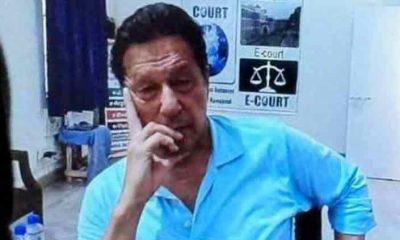
 pakistan3 months ago
pakistan3 months ago
 Tech3 months ago
Tech3 months ago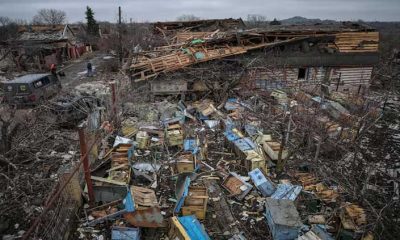
 World3 months ago
World3 months ago
 Business3 months ago
Business3 months ago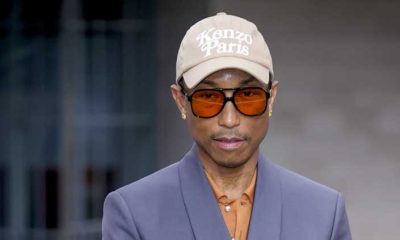
 Entertainment3 months ago
Entertainment3 months ago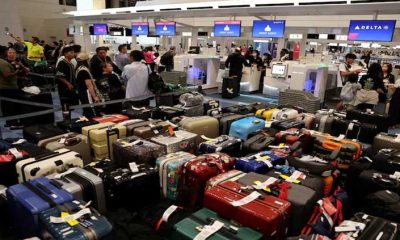
 Tech3 months ago
Tech3 months ago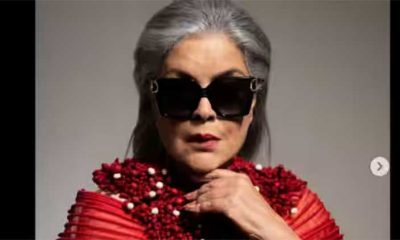
 Entertainment3 months ago
Entertainment3 months ago
 Business3 months ago
Business3 months ago

